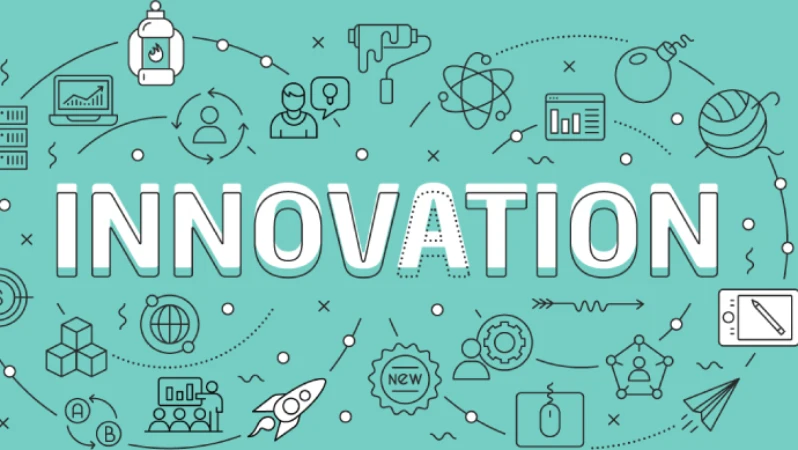Innovation shaping the modern world is a powerful force driving progress across all aspects of life. From the technology we use daily to the way we solve global challenges, new ideas are continually transforming our world. The concept of innovation shaping goes beyond just creating new gadgets; it involves rethinking traditional methods and envisioning new possibilities that can lead to groundbreaking changes.
As innovation shaping evolves, it impacts every industry and aspect of society, from healthcare and education to transportation and entertainment. By embracing fresh ideas and encouraging creative problem-solving, we pave the way for a brighter and more efficient future. Understanding how these innovations influence our daily lives helps us appreciate the transformative power of innovation shaping in making our world better and more connected.
Innovation Shaping
Key Areas of Innovation
Innovation has a profound impact on various sectors of society, reshaping how we live, work, and interact. This section explores some of the most significant areas where innovation is making a difference, including technology, healthcare, and environmental solutions. Each of these areas showcases how new ideas can lead to transformative changes, improving our quality of life and driving progress forward.
Technology and Digital Advancements
In the realm of technology, innovation has brought about incredible advancements that have revolutionized our daily lives. From smartphones and smartwatches to artificial intelligence and virtual reality, technology continues to evolve at a rapid pace. These innovations not only enhance our personal experiences but also drive efficiencies in various industries.
One notable example is the development of the Internet of Things (IoT), which connects everyday objects to the internet, allowing them to send and receive data. This technology has led to smarter homes, where appliances can be controlled remotely, and more efficient industries, where machinery can be monitored and maintained in real-time.
Healthcare and Medical Breakthroughs
Innovation in healthcare and medicine is another area where new ideas are having a significant impact. Advances in medical technology and treatments have improved patient outcomes and increased life expectancy. Innovations such as telemedicine, which allows for remote consultations and monitoring, have made healthcare more accessible to people in remote areas.
Another breakthrough is the development of personalized medicine, which tailors treatments to individual genetic profiles. This approach enhances the effectiveness of treatments and reduces side effects, offering a more targeted solution to medical issues.
Innovation Shaping
Environmental and Sustainable Solutions
As the world faces pressing environmental challenges, innovation is key to developing sustainable solutions that address issues such as climate change, resource depletion, and pollution. Specifically, renewable energy technologies, such as solar panels and wind turbines, are transforming the energy sector by providing cleaner alternatives to fossil fuels. Moreover, these innovations are crucial in reducing greenhouse gas emissions and combating global warming. Consequently, they contribute significantly to promoting a more sustainable future and mitigating the impact of environmental issues.
Moreover, advancements in waste management and recycling technologies are helping to minimize environmental impact. For instance, innovations in biodegradable materials and improved recycling processes are effectively reducing the amount of waste that ends up in landfills and oceans. Additionally, these improvements support more sustainable practices and contribute to a cleaner environment. Consequently, they play a vital role in enhancing waste management efforts and promoting ecological balance.
How Innovation Drives Economic Growth
Innovation plays a critical role in fueling economic growth by driving job creation, increasing productivity, and fostering the development of new industries. As new ideas and technologies emerge, they not only enhance the efficiency of existing sectors but also create opportunities for new business ventures and economic activities. This section explores how innovation contributes to economic expansion, focusing on job creation, productivity enhancement, and successful case studies.

Job Creation and New Industries
One of the most significant ways innovation drives economic growth is through job creation. As new technologies and business models emerge, they generate demand for skilled workers and create entirely new industries. For example, the rise of the tech industry has led to the creation of millions of jobs in software development, data analysis, and cybersecurity. .
Startups and entrepreneurial ventures also benefit from innovation. New business ideas often lead to the formation of startups, which contribute to job creation and stimulate local economies. These startups frequently introduce novel products or services, attracting investment and further driving economic growth. As these businesses grow and succeed, they can expand their operations, hire more employees, and contribute to the overall economic development of their regions.
Enhancing Productivity and Efficiency
Innovation enhances productivity and efficiency across various sectors, leading to economic growth. Technological advancements streamline processes, reduce operational costs, and improve the quality of products and services. For instance, automation and robotics in manufacturing have significantly increased production rates while lowering labor costs.
In the service sector, innovations such as cloud computing and digital tools have transformed how businesses operate. Cloud-based software enables companies to manage their operations more effectively, collaborate remotely, and access real-time data. This increased efficiency not only boosts productivity but also supports business growth and competitiveness in the global market.
Case Studies of Successful Innovations
Several case studies highlight how innovation has successfully driven economic growth. One notable example is the rise of e-commerce giants like Amazon. By revolutionizing online shopping and logistics, Amazon has not only transformed the retail industry but also created numerous jobs and contributed significantly to economic growth.
Another example is the development of electric vehicles (EVs). Companies like Tesla have pioneered advancements in EV technology, leading to increased consumer interest and investment in sustainable transportation. This innovation has not only boosted the automotive industry but also contributed to the growth of supporting industries, such as battery manufacturing and charging infrastructure.
Challenges and Opportunities in Innovation
Innovation, while essential for progress and economic growth, also comes with its share of challenges and opportunities. Navigating these aspects is crucial for harnessing the full potential of new ideas and technologies. This section examines the barriers to innovation, the ethical considerations involved, and the future trends that present opportunities for further development.
Barriers to Implementing New Ideas
Despite the potential benefits of innovation, several barriers can impede the successful implementation of new ideas. One major challenge is the high cost of research and development (R&D). Developing and testing new technologies often require significant financial investment, which can be a hurdle for startups and small businesses. These costs can deter potential innovators and limit their ability to bring new ideas to market.
Another barrier is the resistance to change. Many organizations and individuals are accustomed to established processes and systems, making them hesitant to adopt new technologies or methods. This resistance can slow down the adoption of innovative solutions and hinder their potential impact. Overcoming this inertia requires effective change management strategies and demonstrating the tangible benefits of new approaches.
Balancing Innovation with Ethical Considerations
As new technologies and innovations emerge, ethical considerations become increasingly important. One key issue is the impact of innovation on privacy. Advances in data collection and analysis have raised concerns about how personal information is used and protected. Ensuring that innovations respect individuals’ privacy rights and data security is crucial for maintaining public trust and acceptance.
Another ethical consideration is the potential for innovation to exacerbate inequalities. While technology can offer numerous benefits, it can also widen the gap between those who have access to new advancements and those who do not. Addressing these disparities and ensuring that innovations are accessible to all segments of society is essential for promoting equitable progress.
Future Trends and Potential Opportunities
Looking ahead, several trends and opportunities are emerging in the field of innovation. One notable trend is the rise of interdisciplinary collaboration. Combining expertise from various fields can lead to breakthroughs that might not be possible within a single discipline. For example, collaborations between technology and healthcare professionals are driving advancements in personalized medicine and telehealth.
Sustainability is another key opportunity for innovation. As the world faces environmental challenges, there is growing demand for sustainable solutions that address issues such as climate change and resource depletion. Innovations in renewable energy, waste management, and green technologies offer significant potential for creating a more sustainable future.
FAQ:
Q: What is innovation, and why is it important?
Innovation refers to the process of creating new ideas, products, or methods that improve upon existing ones or introduce something entirely new. It is important because it drives progress, enhances efficiency, and creates new opportunities in various sectors, including technology, healthcare, and business. Innovation helps address problems, meet evolving needs, and foster economic growth by introducing novel solutions and improving quality of life.
Q: What are some common barriers to innovation?
Common barriers to innovation include high research and development (R&D) costs, resistance to change from individuals or organizations, and regulatory or legal constraints. High costs can deter investment in new ideas, while resistance to change can slow down the adoption of innovative solutions. Additionally, strict regulations may delay the approval and implementation of new technologies, making it challenging for innovators to bring their ideas to market.
Q: How can businesses overcome resistance to innovation?
Businesses can overcome resistance to innovation by fostering a culture that encourages creativity and openness to change. This involves creating an environment where employees feel comfortable sharing new ideas and experimenting with novel approaches. Effective change management strategies, such as clear communication about the benefits of innovation and providing training and support, can also help ease the transition and gain buy-in from stakeholders.
Q: What ethical considerations should be addressed in innovation?
Ethical considerations in innovation include ensuring privacy and data security, addressing inequalities in access to new technologies, and managing potential risks associated with advanced technologies. Innovators should focus on protecting individuals’ privacy, promoting equitable access to innovations, and developing ethical guidelines for emerging fields like artificial intelligence and biotechnology to ensure responsible use and avoid misuse.
Q: What future trends are shaping the field of innovation?
Future trends shaping innovation include interdisciplinary collaboration, sustainability, and advancements in digital technologies. Interdisciplinary approaches combine expertise from various fields to drive breakthroughs. Sustainability focuses on creating solutions that address environmental challenges and promote resource efficiency. Digital technologies like blockchain and quantum computing are also emerging as transformative forces, offering new ways to manage data and solve complex problems.
Conclusion
Innovation is a powerful driver of progress and economic growth, shaping various aspects of our world through advancements in technology, healthcare, and sustainability. By creating new solutions and improving existing methods, innovation addresses challenges, enhances efficiency, and opens up new opportunities across different sectors.
Looking ahead, the continued exploration of emerging trends and interdisciplinary approaches promises to unlock even more potential for positive impact. Embracing and addressing these opportunities and challenges will ensure that innovation continues to contribute to a better, more connected, and sustainable future for all. By fostering a culture of creativity and responsible development,
